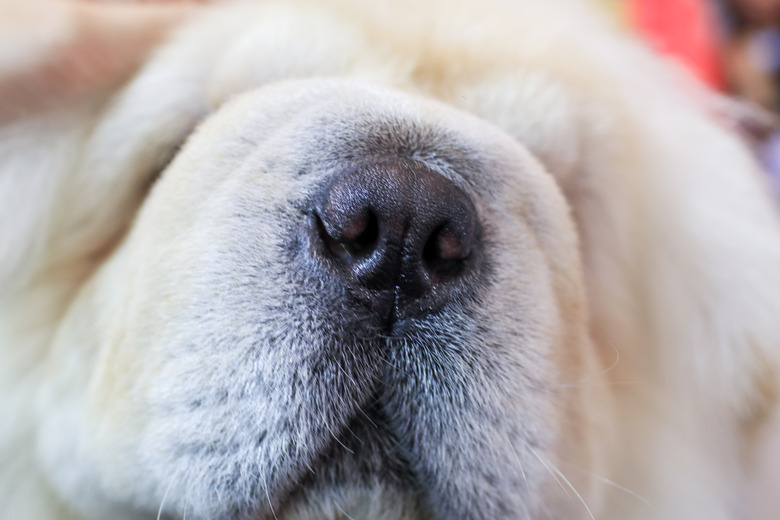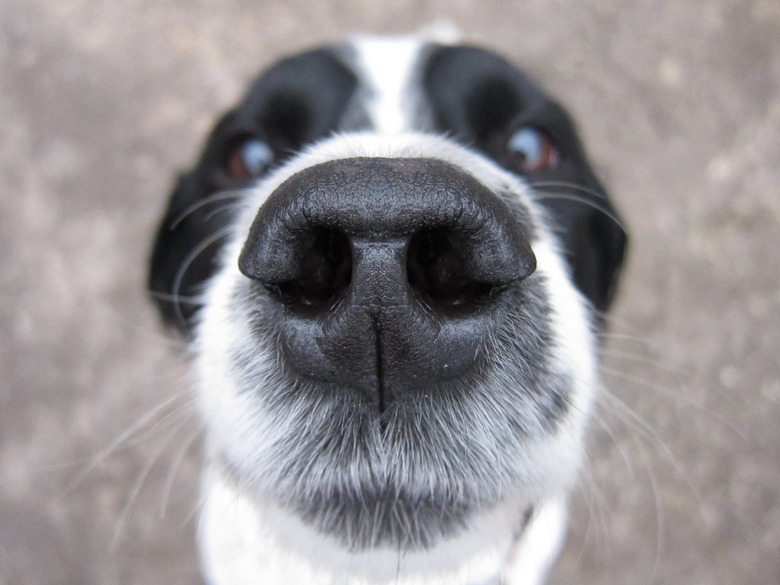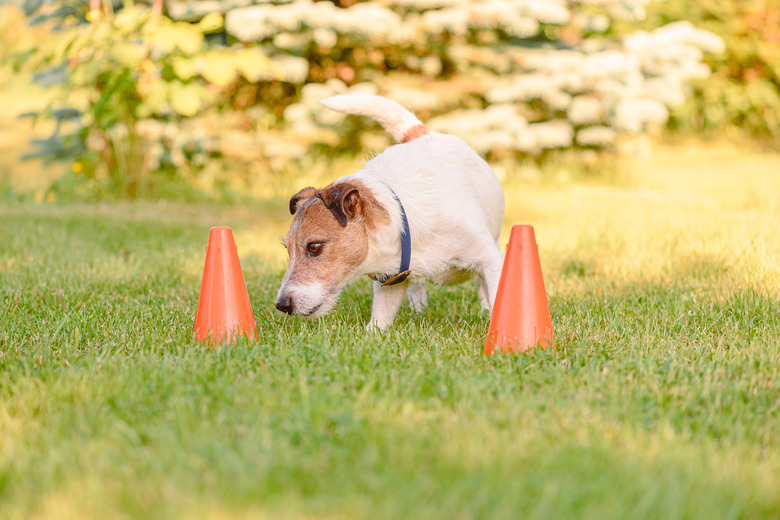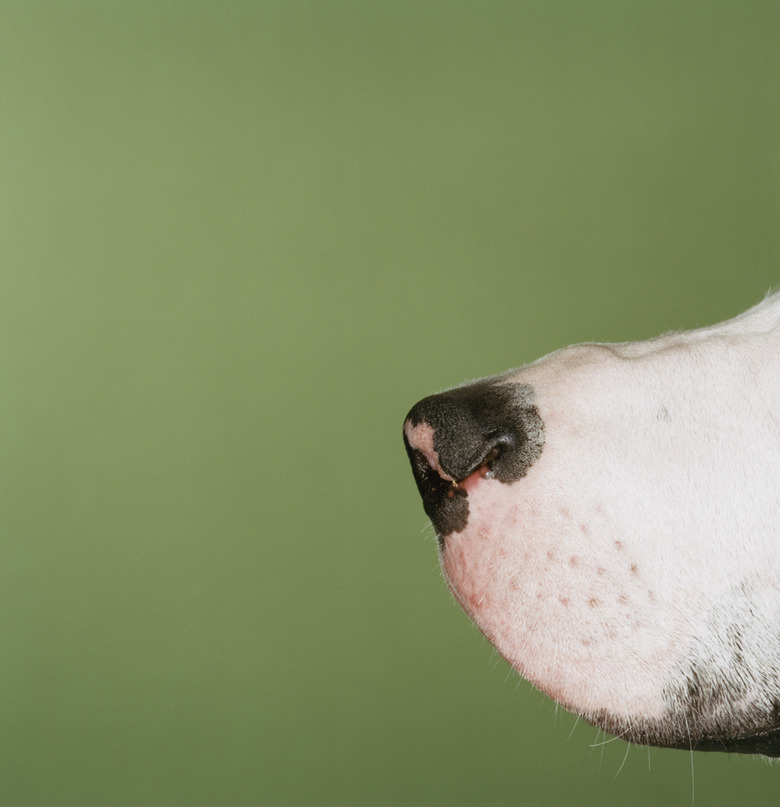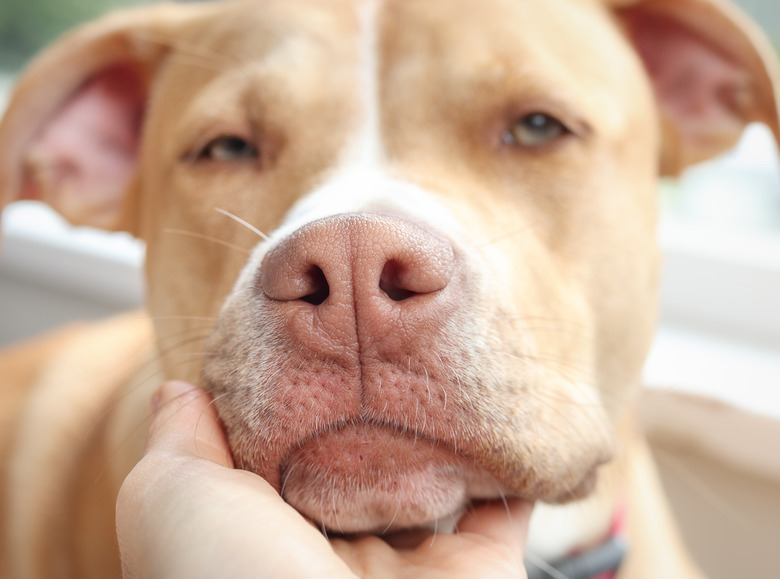Why Do Dogs Have Wet Noses?
Pet parents are probably all too familiar with the feeling of a wet, cold nose nudging them away in the early morning hours. We may know right away why they want us to wake up, but what's with the moisture? Why do dogs have wet noses anyway? Well, it's to help them navigate the world in the best way they know how.
Why is a dog’s nose wet?
Why is a dog's nose wet?
A dog's nose is wet because it helps them smell things better! The damp surface of a nose allows scent particles to stick better than they would on a non-damp surface, and more scent particles mean more smells to pick up. Unlike people, who rely mostly on our sense of sight to navigate and understand the world around us, dogs use their senses of smell to interpret what's going on. That's why you may see your canine companion following their nose along the ground to find a piece of food—their noses are far more reliable than their eyes for finding things (in fact, if your dog has a pointed snout, they may not be able to see up close very well at all, so having a healthy nose is essential to their quality of life.)
A dog’s sense of smell
A dog's sense of smell
Dogs have unbelievable noses, and the strength of a dog's nose is something that human beings will just never really be able to accurately compare anything to. We typically have about 6 million olfactory receptors in our own noses that help us identify scents, while dogs have upward of 100 million. This sensory advantage has evolved with dogs to help them survive, not only by sniffing out rotten food or foul water sources, but also by interpreting information about other dogs, animals, and people. You've probably already seen this in action on your daily walk with your pup—something catches their attention, and before you know it, their snout is glued to the ground for seconds or even minutes. Often, we can't even see what our dogs are smelling, but their noses know it's there. A dog's sense of smell is so precise that it can even pick up pheromones, which can carry information like whether a dog is pregnant or in heat, how sick or healthy a dog is, and which territories they should stay out of if they want to avoid a fight.
How does something as simple as a smell deliver so much info? A dog's olfactory system is very complex and involves much more than just the nose. When a dog inhales a scent, the scent particles move through their nasal passage into pathways—one goes to their lungs, and the other goes to their olfactory region, where they don't come back out. The thin layer of mucus that your dog's nose produces makes airflow through the passages easier, so a healthy nose is an important part of your pet's quality of life. From here, this air flows to the Vomeronasal organ, or Jacobson's organ, which is located on the roof of the mouth and is responsible for detecting semiochemical signals that contain information.
A 2021 study published in Animals shows that dogs even use certain nostrils to sniff certain things. The right nostril was used mostly for smelling non-threatening or arousing things, like food, while the left nostril was reserved for detecting info that could affect your dog's behavior, like territorial markings. This is because the right side of the brain, which is the side correlated with the left side of the nose, controls "novel information processing," and could help your dog name a quick decision in an instant, if need be.
Signs of illness
Signs of illness
A cold, wet nose is a sign of a healthy dog, but a warm, dry nose doesn't necessarily mean that your dog is unwell. If your dog's nose is dry or warm but you don't notice other symptoms of illness, like fatigue, loss of appetite, drooling, or vomiting, then it's most likely nothing to be worried about. A dog's nose can dry out in hot weather, in arid climates, and even while they sleep, so don't let that be the only reason you think your dog might be sick. The health of the skin around the nose, however, could be an indicator that something is amiss. If your dog's skin is peeling, cracking, or just very dry, you should consult your veterinarian as these can all be signs of an autoimmune disorder.
Excess mucous, nasal discharge or a runny nose may also be a sign of health issues in your dog, which can include a respiratory infection.
The bottom line
The bottom line
A dog's nose is wet as part of their olfactory system's functioning. Picking up and interpreting scent molecules is a huge part of life and survival for a dog, and a moist nose makes it that much easier for scent chemicals to stick. While cold, wet noses are considered to be signs of a healthy dog, don't worry too much if your dog has a drier nose—as long as they're producing enough mucous to keep air flowing through their nasal passages, your pet should be in good health. If your dog has excessively dry skin around their nose, however, or if they have a runny nose, consult your veterinarian in case it's an illness like upper respiratory infection.
